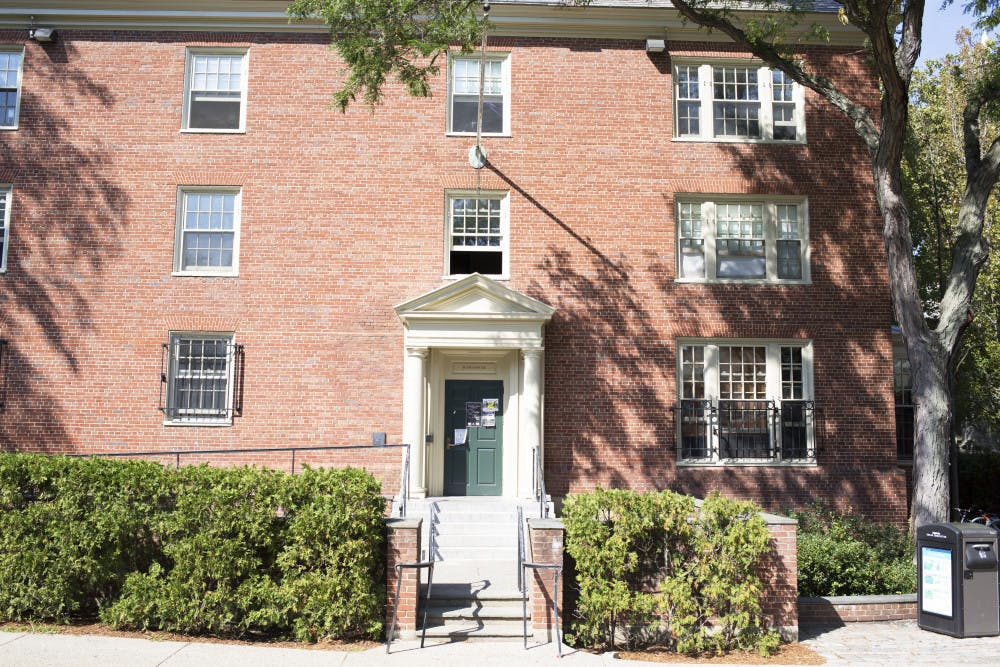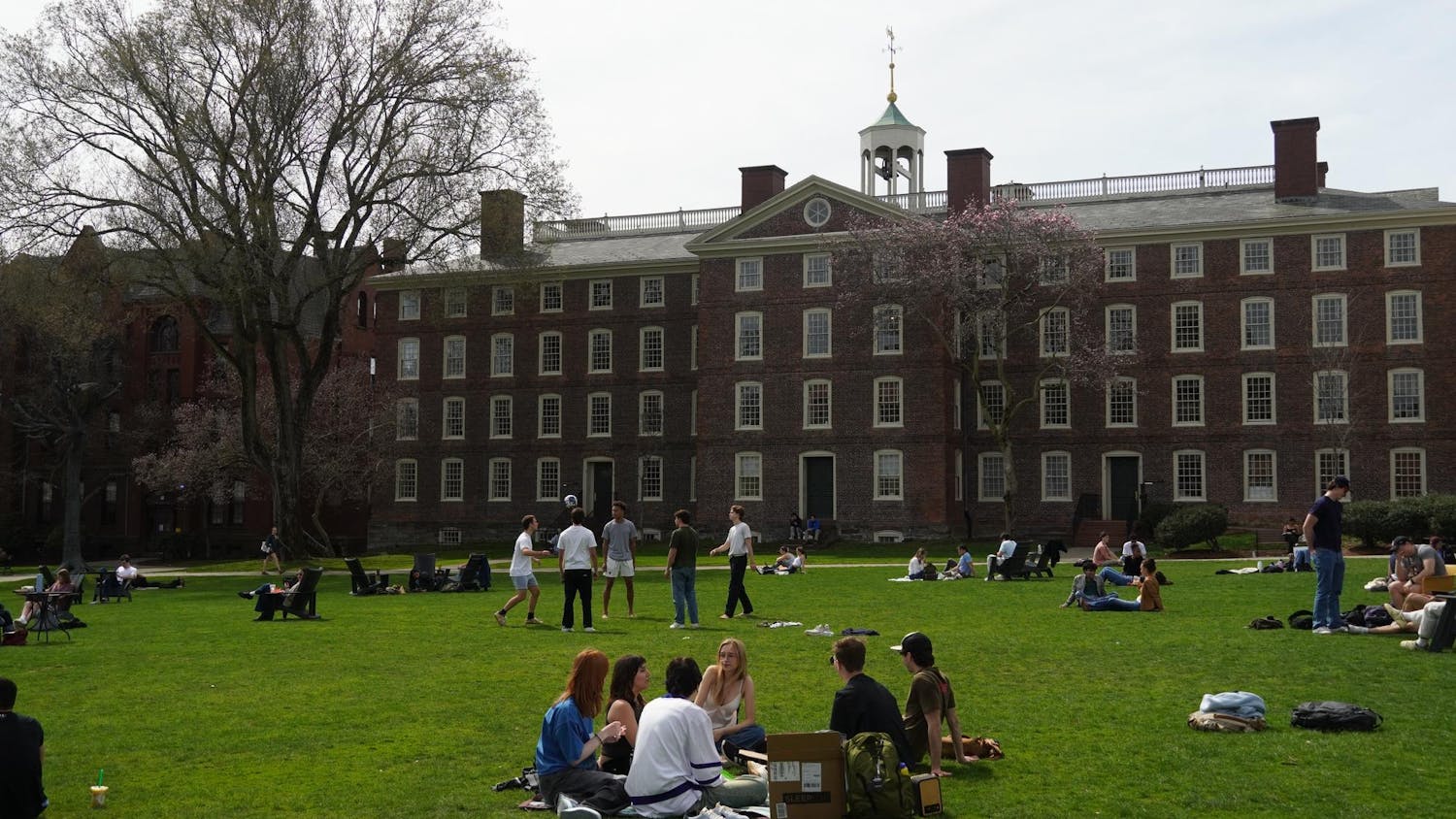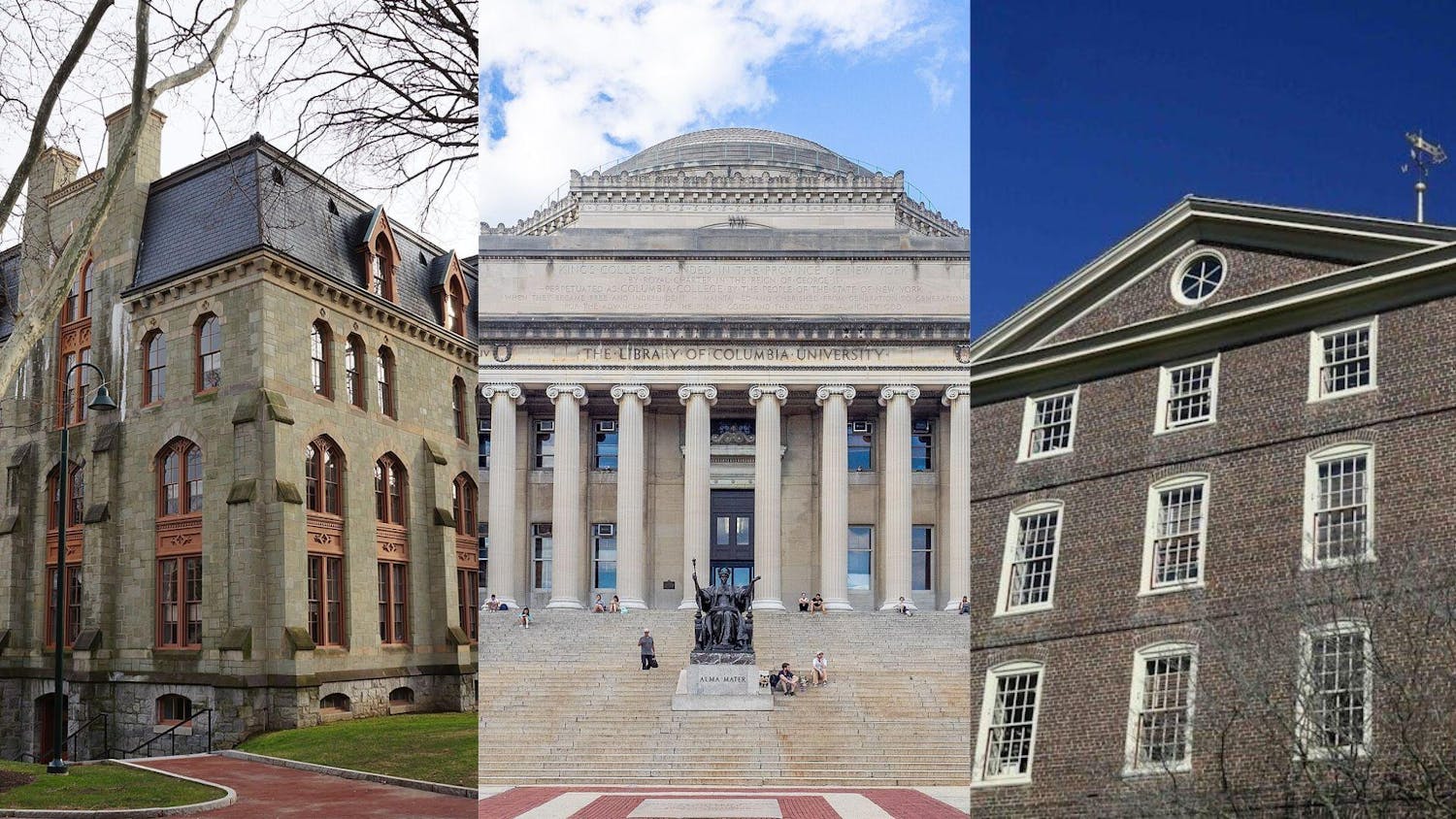Graduate students have been hired to patrol first-year residence halls and program houses to reduce disturbances and increase alcohol safety on weekend nights.
This initiative was one of several recommendations from the Alcohol and Social Event Review committee’s report — released to the community earlier this month — and was put into effect starting the weekend of Sept. 11.
Pairs of graduate students will be placed in Keeney Quadrangle, Pembroke’s first-year dorms and Wriston Quadrangle on Friday and Saturday nights between 7 p.m. and 3 a.m., said Natalie Basil, director of the Office of Residential Life.
The Review of Alcohol and Social Event Policies committee saw a need for a level of authority in between the Department of Public Safety and Residential Peer Leaders, Basil said. Graduate students are particularly fit for the position because they are a part of the student community but also serve as an adult presence, she added.
The primary purpose of hiring graduate student patrollers is to reduce harm in residence halls, said Richard Bova, senior associate dean of Residential Life and Dining Services. The patrollers will present to lessen the amount of “noise, vandalism, excessive drinking” and general community disturbance that would affect first-year residents and students living in between program and Greek housing, he added.
Patrollers will control “screaming and yelling out the windows at two o’clock in the morning,” as well as “parties organically springing up in the hallways,” Bova said.
“These graduate students will not go around and look for problems, but when faced with problems, they will confront and work with residents to think about their behavior and how they’re impacting other members of the community,” he added.
In addition to enforcing community guidelines, the patrollers will be equipped to connect students with necessary resources for emergencies such as alcohol poisoning, Basil said. The graduate students will also host Friday night events that will provide food and activities as an alternative to going to a party, she added.
While the graduate students will not be a part of the RPL program, they will complement the work of RPLs by taking an active role in residential communities, Bova said. Instead of acting as enforcement, RPLs serve as leaders with “peer-to-peer” relationships with residents, which is where the need for an enforcement entity arose, he added. “The RPL position was not designed to have a standard ‘address or report’ component to their job,” Bova said.
Unlike RPLs, the graduate student patrollers will be recognizable by their blue ResLife shirts and nametags, Basil said.
The graduate student patrollers have finished their first weekend monitoring Pembroke residence halls, Basil said. First-year students who were in their dorm rooms while the graduate students were walking the halls said they did not notice their presence.
“I don’t think (having graduate student patrollers) is a bad idea, especially since we’re buckling down on school work,” said Uchechukwu Onwunaka ’19, adding that she noticed a reduction in dorm parties last weekend.





